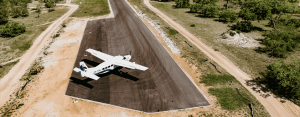The University of South Africa (Unisa) and Air Traffic and Navigation Services (ATNS) are set to take South Africa’s aviation innovation to new heights with the signing of a landmark Memorandum of Understanding (MOU) — a move that promises to bridge the gap between cutting-edge academic research and real-world air traffic management.
The agreement, anchored within Unisa’s Catalytic Niche Area on Aviation and Aeronautical Studies, is part of an Engaged Scholarship Project that launched in early 2024. It combines Unisa’s deep research and teaching capacity with ATNS’s operational and technical know-how, setting a new benchmark for academia-industry collaboration in the region.
By Jarryd Sinovich
“This partnership positions us to tackle some of the aviation sector’s most pressing challenges while developing skills that keep South Africa competitive in a fast-changing global market,” says Unisa’s Office of the Vice Principal: Research, Postgraduate Studies, Innovation and Commercialisation.
Bridging Skills Gaps for the Future
A big focus will be on aligning the ATNS Aviation Training Academy’s qualifications with South Africa’s National Qualifications Framework (NQF). Formal accreditation of short learning programmes and the development of new diploma-level offerings are also on the cards, in partnership with Unisa’s Academic Planning Office and the College of Science, Engineering, and Technology (CSET).
The goal? Build a pipeline of skilled aviation professionals who are ready for the demands of tomorrow’s airspace.
Monitoring Real Impact
A structured monitoring and evaluation framework is already in place, with quarterly progress reports, subcommittee updates, and regular reviews under Unisa’s Engaged Scholarship approach. This means real accountability and measurable results — not just signed papers.
A Shared Commitment to Growth
From air traffic management to innovative research in aeronautical studies, this partnership stands out as a model for how academic institutions and industry players can co-create sustainable solutions that benefit the entire aviation ecosystem.
By combining classroom theory with operational expertise, Unisa and ATNS are shaping a new generation of aviation professionals and researchers — and putting South Africa’s skies on a path to smarter, safer, and more connected growth.







